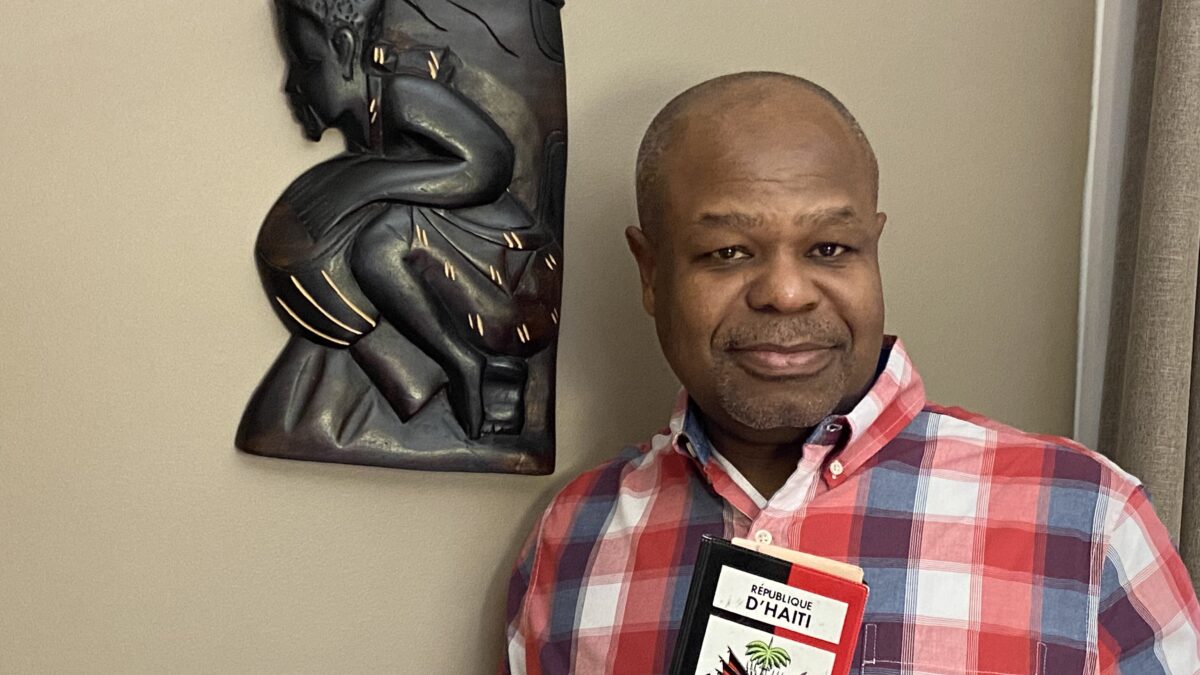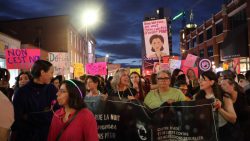Aly Alexandre was eight years old when, decades ago, he and three of his family members fled Haiti — a dictatorship at the time.
“It was the best choice they could’ve made,” Alexandre, now 56, said of his parents’ decision.
In the 1970s in Haiti, Alexandre said that if citizens were not well connected to those in power, they would not have the freedom to do anything.
Alexandre’s parents realized there was no future for them or their two children in Haiti, and with the help of Alexandre’s grandfather, they moved to Canada.
“I was kinda lucky,” Alexandre added, reflecting on his family’s escape five decades ago.
Since then Haiti’s turmoil worsened.
The country has experienced constant political instability, severe poverty, gang violence and the horrific 2010 earthquake that devastated the country.
Now another crisis is unfolding.
On March 3, a state of emergency was declared as the capital, Port-au-Prince, was overtaken by violent gangs who released prisoners, attacked police stations and displaced hundreds of citizens from their homes.
“It’s so disappointing. I keep having my hopes up and every time, something brings it down,” Alexandre said.
He’s not alone in expressing these sentiments.
It breaks my heart every time I speak to them and they share with me what they’re going through.
Ketcia Peters, CEO, North-South Development Roots and Culture Canada
Ketcia Peters, CEO of the Ottawa-based North-South Development Roots and Culture Canada, said she still has family in Haiti. “It breaks my heart every time I speak to them and they share with me what they’re going through.”
NSDRCC is “dedicated to providing advocacy services and creating culturally appropriate programs for vulnerable communities, including youth, seniors, women, and members of the diverse Black community.”
Peters said Haiti’s history of unrest affects its ability to implement development plans and address socio-economic challenges. She said she’s concerned it will be difficult for Haitian citizens to rebuild without foreign intervention.
Haiti’s former prime minister, Ariel Henry, resigned on March 12, initiating a power struggle for control of the Caribbean nation, which occupies the western half of Hispaniola island bordering the Dominican Republic.
Marjorie Villefranche, executive director of Maison D’Haiti in Montreal, said the superficial change in political leadership won’t fix anything and the same old problems will remain.
“If you really want a change, you cannot keep the same old people in power. They will do exactly the same old things,” Villefranche said.
In a recent statement, a senior diplomat in Haiti called the violent groups currently in control of the country not as gangs but “rebel groups,” something that Villefranche strongly disagrees with.
“They are not a rebel group at all. You know, a rebel has an ideology and I see nothing there. They don’t have a political goal,” Villefranche said.
If you really want a change, you cannot keep the same old people in power. They will do exactly the same old things.
Marjorie Villefranche, executive director, Maison D’Haiti in Montreal
With violence spreading across the capital, Alexandre says he’s still hopeful and believes something will come out of the situation. But he says more has to be done by the international community.
“People will have to basically stop talking and (start) doing – doing things, being action-oriented,” said Alexandre, adding that he believes Canada needs to take a stronger role in helping restore stability in Haiti.
Canada, along with the United States, France, Brazil, and the United Nations, were invited by Caricom – the 15-member community of Caribbean nations – to attend an emergency meeting in Jamaica on March 11 to discuss the “dire” situation.
Canada later announced it was contributing $80.5 million toward a multinational security force for Haiti but has been criticized for not sending Canadian military personnel to be part of the force.
Alexandre, Villefranche and Peters agree Canada must get even more involved in helping Haiti.
Villefranche said Canada could work with the Haitian diaspora in this country to help find solutions.
Haitian Canadians are already helping in their own way.
Peters said she is collaborating with concerned Haitian Canadians who have family members on the island. Additionally, she’s organizing a healing and peer-support session. The date for the gathering is still to be determined.
Alexandre, along with his sister, has been sending food, money and medication since the 2010 earthquake. He said he continues to send annual donations through the Red Cross.
He said he has plans to visit Haiti after retiring – once the country is safe – to contribute to building a sustainable future.
“I will go back and help in any capacity that I can,” he said, which could include teaching, building or writing policies. “ I will do my part.”




